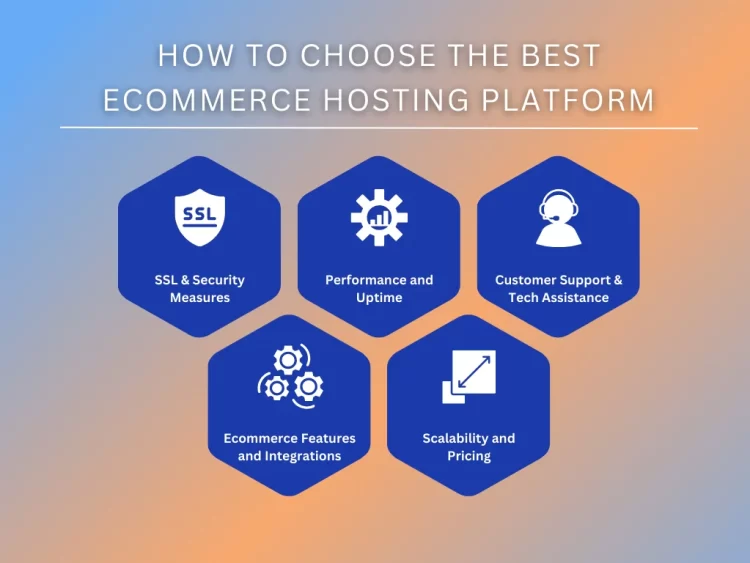The success of an e-commerce venture hinges on many pivotal decisions, one being the choice of hosting service. Shared hosting stands out as a cost-effective option tailored for small to medium-sized online businesses. Selecting the right hosting service is paramount for ensuring the seamless operation of an e-commerce platform.
Shared hosting for e-commerce websites warrants careful consideration to optimize performance and reliability. The efficiency of the hosting service directly impacts the user experience and ultimately, the business’s bottom line. Security measures and robust support are also crucial aspects to contemplate when delving into shared hosting for e-commerce.
In the realm of online commerce, the choice of hosting service can make or break a business. By understanding the best practices and considerations associated with shared hosting for e-commerce, businesses can navigate this landscape with confidence and set a solid foundation for growth and success.
Shared hosting is a common type of web hosting where multiple websites share resources on a single server. This setup allows for cost-effective hosting solutions, making it an attractive option for e-commerce startups looking to establish their online presence without hefty initial investments.
- Cost-Effectiveness: Shared hosting is budget-friendly, ideal for small e-commerce businesses looking to minimize costs at the initial stages.
- Ease of Setup: Setting up an e-commerce platform on shared hosting is relatively straightforward, even for those with limited technical expertise.
- Scalability: Shared hosting can accommodate the growth of an e-commerce platform as the hosting service provider manages server maintenance and upgrades.
- Limited Resources: Since resources are shared among multiple websites, performance may be affected during peak traffic times.
- Slower Loading Times: High traffic on other websites sharing the server can lead to slower loading times for e-commerce sites.
- Security Concerns: Security risks exist when sharing a server with other websites. It’s important to implement robust security measures to safeguard e-commerce data.
To mitigate these limitations, e-commerce businesses can optimize their website performance through efficient coding practices, implement content delivery networks (CDNs) to enhance loading speeds, and regularly update security protocols to protect customer data.
Shared hosting offers a balance of affordability and functionality for e-commerce businesses starting their online journey. Understanding the advantages and limitations of shared hosting is crucial for making informed decisions when selecting the right hosting solution for your e-commerce platform.
Selecting the ideal shared hosting provider for your e-commerce website can significantly impact your online business’s success. Consider various factors to ensure your hosting service aligns with your e-commerce needs.
Reliable performance and uptime are critical for any e-commerce site’s success. Downtime can result in lost sales and damage your business reputation. When evaluating shared hosting providers, look for uptime guarantees of 99.9% or higher. Ensure the provider offers robust server infrastructure to minimize downtime effects on your e-commerce operations.
Scalability is crucial for accommodating the growth of your e-commerce platform. Assess the hosting provider’s ability to handle increased website traffic and resource demands as your business expands. Look for flexible resource allocation options and scalability features that can easily adjust to your e-commerce site’s evolving needs without compromising performance.
Security is paramount for e-commerce websites to protect sensitive customer information. Shared hosting providers should offer essential security features such as SSL certificates, firewalls, regular data backups, and PCI compliance. These measures help safeguard customer data, prevent cyber threats, and build trust with your online audience.
When selecting a shared hosting provider for your e-commerce website, consider a comprehensive approach that includes uptime guarantees, scalability options, security features, customer support, and pricing. Prioritize a hosting service that aligns with your business requirements and provides a reliable foundation for your e-commerce operations.
In the world of e-commerce, performance optimization is key to ensuring a seamless shopping experience for your customers. When operating on a shared hosting environment, it’s essential to implement strategies that enhance website speed and efficiency. Let’s delve into some best practices for optimizing e-commerce performance on shared hosting.
Caching and CDN Integration
Caching plays a vital role in boosting website speed by storing frequently accessed data and serving it quickly to users. By integrating a Content Delivery Network (CDN), you can further reduce latency and enhance performance for e-commerce customers worldwide. Implementing caching mechanisms like browser caching, server-side caching, and utilizing CDNs can significantly improve your website’s speed and responsiveness.
Image Optimization and Compression
Images are integral to e-commerce websites but can also be a significant contributor to slow loading times. Optimizing images through compression techniques, such as reducing file sizes without compromising quality, is crucial for faster page loading. Additionally, implementing lazy loading ensures that images are only loaded when they come into view, optimizing the user experience. Embracing responsive image design further enhances performance by delivering appropriately sized images based on the user’s device.
By prioritizing caching, CDN integration, and image optimization on a shared hosting environment, you can elevate your e-commerce website’s performance and provide customers with a seamless shopping journey.
When operating an e-commerce website on shared hosting, securing customer data is paramount. Data Encryption and Secure Transactions play a crucial role in safeguarding sensitive information. Implementing SSL certificates, HTTPS protocols, and secure socket layer (SSL) encryption ensures that customer data and transactions are protected from malicious intent, maintaining data integrity and fostering customer trust.
Data Encryption and Secure Transactions
Encrypting customer data and transactions involves utilizing SSL certificates to establish secure connections between the user’s browser and the server. HTTPS protocols ensure that data transmitted between the user and the website is encrypted, making it unreadable to unauthorized parties. Secure socket layer (SSL) encryption adds an extra layer of security by encoding data during transmission, safeguarding crucial information such as credit card details and personal data.
Compliance and Regular Security Audits
Compliance with data protection laws and regulations is vital for e-commerce businesses to uphold the privacy rights of customers. Conducting regular security audits and vulnerability assessments helps identify and mitigate potential security risks on shared hosting servers. By maintaining a proactive security posture, businesses can strengthen their defenses against cyber threats and ensure the confidentiality and integrity of e-commerce data.
By prioritizing data encryption, secure payment gateways, and regular security audits, e-commerce websites hosted on shared servers can uphold the highest standards of data protection and instill confidence in customers regarding the security of their personal information. Staying compliant with data protection regulations and implementing best practices in cybersecurity are essential steps towards safeguarding sensitive e-commerce data in a shared hosting environment.
Conclusion
In conclusion, selecting the right shared hosting provider is a critical decision for e-commerce businesses. Prioritizing performance, reliability, security, support, and pricing is essential in ensuring a seamless online shopping experience for customers. By implementing best practices and considerations outlined in this blog post, e-commerce entrepreneurs can optimize their website’s performance and enhance security measures on shared hosting platforms. It is imperative to choose a reputable hosting provider that specializes in e-commerce services to support your business growth and success in the digital marketplace.










